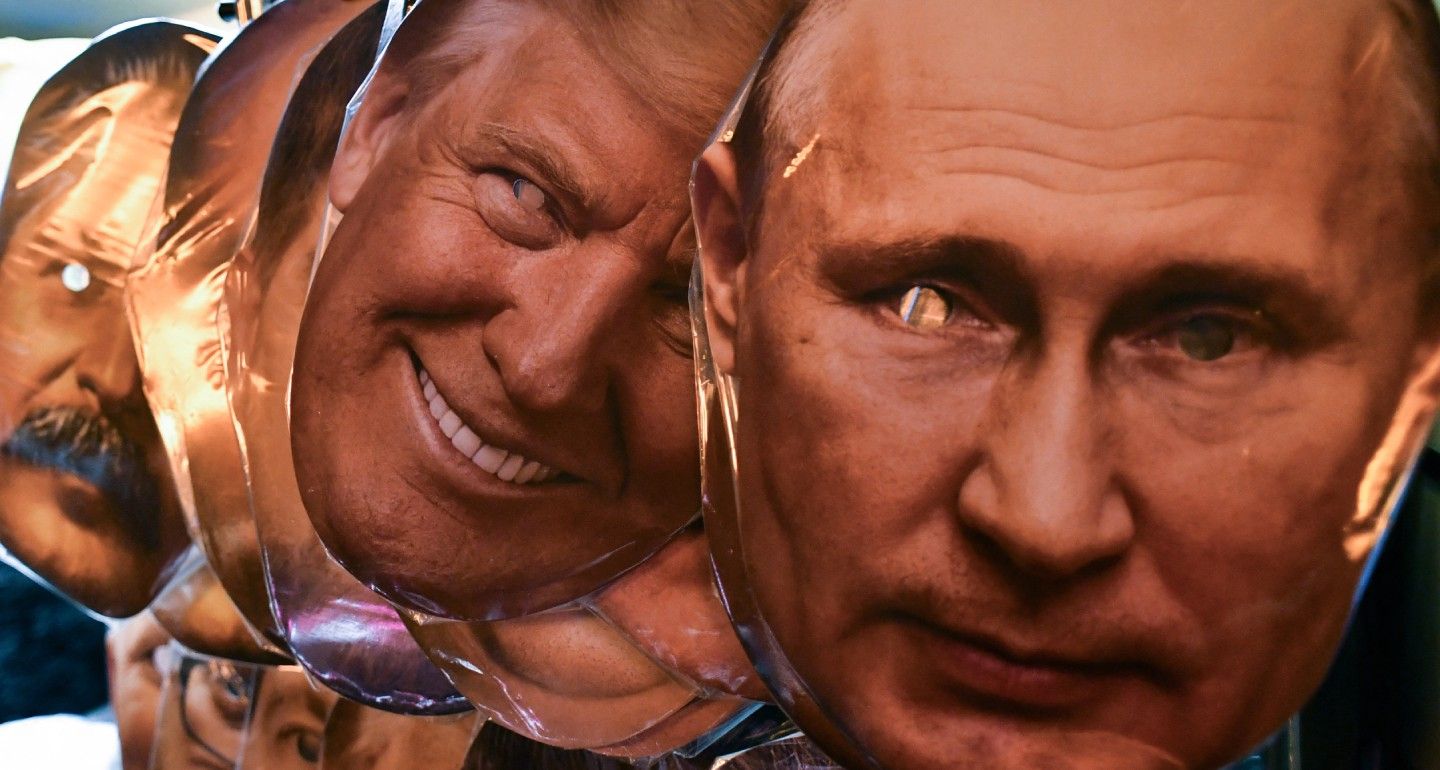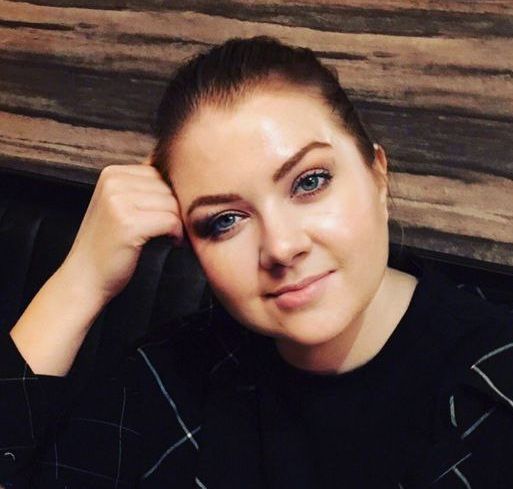With the blocking of Starlink terminals and restriction of access to Telegram, Russian troops in Ukraine have suffered a double technological blow. But neither service is irreplaceable.
Maria Kolomychenko
{
"authors": [
"Alexander Baunov"
],
"type": "commentary",
"blog": "Carnegie Politika",
"centerAffiliationAll": "",
"centers": [
"Carnegie Endowment for International Peace",
"Carnegie Russia Eurasia Center"
],
"englishNewsletterAll": "",
"nonEnglishNewsletterAll": "",
"primaryCenter": "Carnegie Russia Eurasia Center",
"programAffiliation": "",
"programs": [],
"projects": [],
"regions": [
"Russia",
"United States"
],
"topics": [
"Foreign Policy",
"Military",
"Security",
"NATO",
"Global Governance"
]
}
Source: Getty
If even a peace proposal from Trump is rejected by Putin, then it means the demise of the Russian “victory plan” and any remote prospect of ending the war.
When Donald Trump was first elected U.S. president in 2016, Russian President Vladimir Putin was one of the first to congratulate him, and amid allegations of Russian interference in that election, pro-Kremlin propaganda mouthpieces openly crowed that the victory was really Moscow’s.
This time around, things are very different. During the recent U.S. presidential campaign, Moscow was at pains to state that it was indifferent to the outcome of the election, and the jubilation in Moscow is far more muted than it was in 2016. That’s not just because Trump’s last presidency failed to live up to Russia’s expectations. Moscow is awaiting the first steps of the incoming administration with scarcely less trepidation than Kyiv and Western capitals.
It’s not just that confrontation with the West is a long-term strategic choice, independent of momentary fluctuations in Western policy. Nor does it matter that Trump’s victory undermines the Kremlin’s main propaganda narrative that voters don’t decide anything anywhere. The Kremlin’s propaganda machine can justify rapprochement with just about anyone, and deflect attention from any contradiction.
But the U.S. election result does present Putin with three far more serious problems. The first is that Trump’s victory could undermine Russia’s painstaking efforts over the past two years to carve out an image as the leader and selfless defender of the “global majority.” Attitudes toward Trump are generally far more negative in the Global South than in Russia, where he has been notably more popular than his rival Kamala Harris—both among the elite and ordinary people, many of whom say they would vote for Trump if given the chance. China may have softened a little from outright rejection to a more neutral stance (though it is already becoming more negative again following the president-elect’s first steps), but for India, Latin America, Africa, and the Muslim world, Trump remains a symbol of chauvinist America. They would have preferred to see Harris in the White House.
This fact cannot help but highlight the difference in the goals and interests of the Global South and Russia. Trump will also likely attempt to weaken the growing alliance between Russia and China. While Moscow will make a show of resisting that, it will be very tempting for it to loosen its unilateral and asymmetrical dependence on Beijing if the opportunity presents itself.
The second issue is that Trump may successfully oust the Russian president from what Putin considered his own niche: as the leader and inspiration for anti-liberal, conservative, and anti-elitist forces in the West. Putin’s largely traditionalist and homophobic agenda is less attractive to the Western right than Trump’s aggressive, unfiltered anti-immigration rhetoric. Putin simply can’t afford to adopt the same approach: he badly needs labor from the post-Soviet countries of Central Asia. Moreover, he has always feared that an overly hostile stance toward Muslim immigrants could provoke unrest among Russia’s own Muslim communities and potentially aid the West in splitting the country. For the Western right, the U.S. president, as a populist leader, is a far more powerful figure than the Russian dictator.
Still, the main difficulty Trump’s victory poses for the Kremlin is that while Trump may well want to demonstrate his efficiency by forcing a truce in Ukraine or at least freezing the conflict, it is not currently in Putin’s interests for that to happen. Right now, the Russian president does not appear to want any concrete proposals from the West for a ceasefire in Ukraine, even if they entail concessions from the Ukrainian side. The absence of such proposals has allowed Putin to continue the war while blaming Ukraine and the West for failing to offer a realistic peace plan.
It is obvious that Trump’s solution will be far from Kyiv’s wishes. Any concrete proposal to stop the conflict just now will be at Ukraine’s expense in one way or another: in other words, unfair and defective in terms of international law. That’s little consolation for Putin, however, who doesn’t seem to want any peaceful solution currently, fair or otherwise. He appears to have recovered from the setbacks of 2022 and 2023, regained military and economic confidence, and is now proceeding on the basis that time is on his side in this war of attrition. Russian officials constantly repeat that all the goals of the “special military operation” will be achieved.
For the time being, the Russian leader can continue to wage war, citing Ukrainian President Volodymyr Zelensky’s reluctance to enter into peace talks and the lack of concrete proposals from Washington. The Kremlin’s own “peace” proposal for Ukraine to give up four entire regions plus Crimea—including territory that Russia has never controlled—and to disarm is nothing but a flimsy pretext for continuing the war.
Putin seems confident that he can keep going, and that confidence has brought him back to the original goal of the invasion: to seize all of Ukraine, with some territory annexed directly by Russia, and other parts transformed into a satellite state akin to a second Belarus.
Specific Western proposals—even for a ceasefire along the current line of contact—will put Putin in a difficult position. He will no longer be able to continue his slow war of attrition as if nothing had changed. But if that offer should be rejected, Trump is quite capable of moving to a plan B that would involve uncharted horizons of escalation.
To complicate matters further, Trump’s offer might also appeal to some of Russia’s influential partners—not to mention a significant part of war-weary Russian society. Trump’s victory in the U.S. election effectively was Russia’s “plan for victory” in Ukraine. The Russian elite was hoping for precisely this turn of events, because in the global scheme of things, it’s hard to achieve anything greater than a new occupant in the White House who is ready to talk and listen to Russia’s arguments, including about amending the world order and making concessions in Europe. And if even a proposal from that same U.S. president is rejected by Putin, then it means the demise of the Russian “plan for victory” and any remote prospect of ending the war. And judging by the mood of Vladimir Putin, that’s exactly what will happen.
Carnegie does not take institutional positions on public policy issues; the views represented herein are those of the author(s) and do not necessarily reflect the views of Carnegie, its staff, or its trustees.
With the blocking of Starlink terminals and restriction of access to Telegram, Russian troops in Ukraine have suffered a double technological blow. But neither service is irreplaceable.

Maria Kolomychenko
The main source of Russian aggression is a profound mistrust of the West and the firm belief that it intends to inflict a “strategic defeat” on Russia. As long as this fear persists, the war will not end.

Tatiana Stanovaya
The Russian army is not currently struggling to recruit new contract soldiers, though the number of people willing to go to war for money is dwindling.

Dmitry Kuznets
Insisting on Zelensky’s resignation is not just a personal vendetta, but a clear signal that the Kremlin would like to send to all its neighbors: even if you manage to put up some resistance, you will ultimately pay the price—including on a personal level.

Vladislav Gorin
For Putin, upgrading Russia’s nuclear forces was a secondary goal. The main aim was to gain an advantage over the West, including by strengthening the nuclear threat on all fronts. That made growth in missile arsenals and a new arms race inevitable.

Maxim Starchak